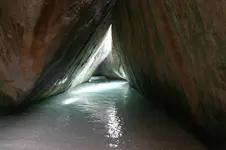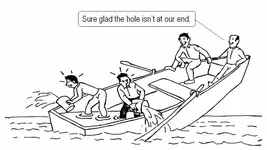Sadly UNESCO and various institutions have banded together with international agreements on the historic preservation of shipwrecks. Many countries have sign up to that agreement so has Panama. Shipwreck hunting is be priced into extinction through the courts.
that's why the trio are very careful in what we involve ourselves in. These factors should be considered.
location, security, operational costs, legal maneuverability, Government support. Land ownership and access rights. All of these are needed in the equation. and remember the bigger the treasure the bigger the head ache.
crow
US searchers need to be aware of a number of statutes pertaining to ownership of
land-based finds too. If the recovery site is on
any Federal Land, you're dealing with the
Archaeological Resources Recovery Act of 1979 and
National Historic Preservation Act of 1966, (both as amended), and other laws and agreements, all of which have been more and more focusing on anything of "cultural interest" found on US land as being owned by the US Government, not the finder. "Cultural interest" now seems to include not only native artifacts, historical items of interest, coins greater than 100 years old, etc. - but, increasingly, also "anything that man was involved with", including valuable caches of any nature.
State Land statutes generally follow Federal guidelines. Theoretically, recoveries are "negotiable" (if you have a powerful enough advocate), but for most folks, if you find anything of value on FS, NP, BLM, State, et al land, that a human was previously involved with, it will likely be assumed that it belongs to The Man.
Private Land recoveries are governed by individual state treasure trove laws, which vary considerably, state to state. Some of the states have interestingly adopted treasure trove guidelines that are in place in other countries, like England, France, Scotland, etc. Private property recoveries, depending on what you find, who owns the land, what state you're in, who you know, how much lawyer money you have, etc., can affect your claim in any number of ways. For example, in my state - New Mexico - the extreme level of traditionally cavalier corruption among state officials is a huge factor to consider when trying to plan a course of action if you're fortunate enough to have found something (the odds of which are quite low in the first place). I would venture that "keeping your mouth shut" is an option many non-naive folks struggle with, figuring that in today's world, all your hard work (or blind luck) may very well go for naught if you report your discovery.
As time passes, and
all governments seize money wherever and however they can in a failing economic model, a small guy treasure finder is facing an increasingly higher wall to climb, IMO. Educate yourselves.










 sniff sniff.
sniff sniff.